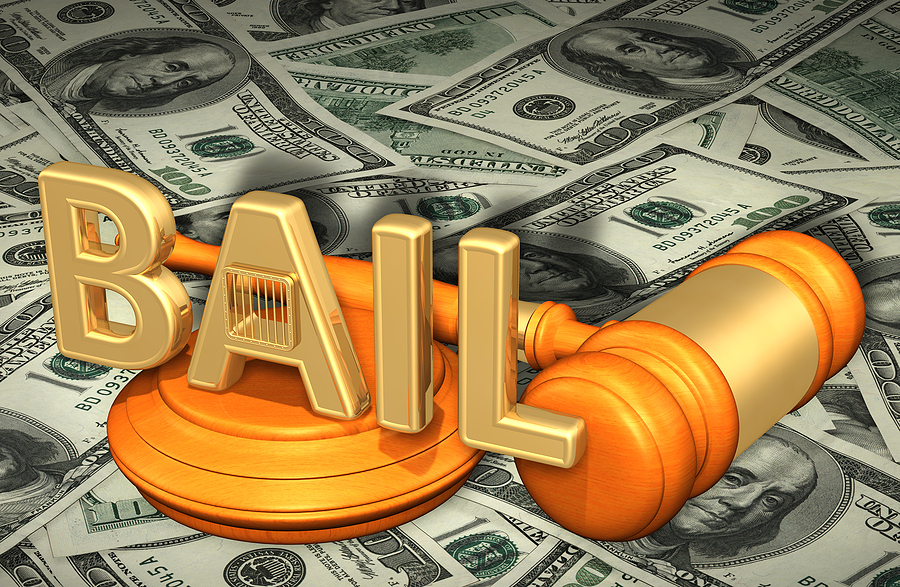Navigating the bail bonds process can often be a murky endeavor, especially when it comes to understanding collateral. Collateral, a vital cog in the bail bonds wheel, often raises a host of questions. What can be used as collateral? How is bail bond percentage calculated based on collateral?
This guide aims to demystify the use of collateral in procuring bail bonds, shedding light on these complex mechanisms to provide a clear picture of the entire process. Join us as we delve deeper into the intricacies of bail bonds and collateral, offering you a comprehensive understanding of their interplay.

What are Bail Bonds?
Before we dive into the complexities of collateral, let’s first define what bail bonds are. In essence, a bail bond is a written agreement between the defendant and the court that guarantees the defendant will appear in court for all required hearings. When an individual is arrested and charged with a crime, they can be released on bail before their trial. This allows them to return to their daily lives and prepare for their court case while out of custody. A bail bond is essentially a form of insurance that ensures the defendant will not flee or evade justice. You can get a bail bond through a bail bond company, operated by bail bondsmen, also known as bail bond agents.
What is Collateral?
Collateral, in the context of bail bonds, refers to any property or asset that is pledged as security for the bail bond. It serves as a guarantee to the bail bond company that they will be able to recoup their losses if the defendant fails to appear in court as promised. This means that if the defendant skips town, the collateral can be sold or liquidated by the bail bond company to cover their financial losses.
What Can Be Used as Collateral?
Common examples of collateral used for bail bonds include real estate, vehicles, jewelry, stocks and bonds, and cash. However, the specific type of collateral accepted can vary from bail bond company to bail bond company. It’s essential to have a detailed discussion with your chosen bail bond agent to understand their particular requirements.
How is Bail Bond Percentage Calculated?
Bail bond percentage is the portion of the total bail amount that must be paid to the bail bond company in exchange for their services. The exact percentage can vary, with most states setting it between 10% to 15% of the total bail amount. For example, if a defendant’s bail is set at $10,000 and the bail bond percentage is 10%, the defendant would only need to pay $1,000 to secure their release – however, this fee is non-refundable, even if the defendant’s charges are dropped or dismissed.
How does Collateral Affect Bail Bond Percentage?
Collateral can play a significant role in determining the bail bond percentage. If a defendant has significant collateral to put up, they may be eligible for a lower percentage and therefore pay less money out of pocket. This is because the bail bond company considers the value of the collateral as an added layer of security against potential losses.
What Happens to the Collateral after the Case is Resolved?
Once the case is resolved and all court appearances have been made, the collateral will be returned to the defendant or whoever put it up. However, it’s important to note that if a defendant fails to appear in court as promised, their collateral may be forfeited, even if they are later apprehended.
Final Thoughts
In conclusion, collateral is an essential aspect of the bail bonds process. It serves as a safety net for bail bond companies and ensures that defendants fulfill their court obligations. Understanding how collateral works can help individuals make informed decisions when seeking bail bonds and navigating the legal system. We hope this guide has provided valuable insights into the use of collateral for bail bonds and helped demystify this often confusing aspect of the criminal justice system. So, if you or a loved one ever find yourself in a situation where bail is required, you’ll now have a better understanding of how collateral plays a crucial role in securing your release.
Remember to always consult with your chosen bail bond agent for specific information and requirements related to collateral and bail bond percentage in Indiana. Contact Uptown Bail Bonds at 317-919-2489 for 24 hour emergency bail bonds in Hamilton County, Indiana. We also provide prearranged bail services for arrest warrant surrenders.
Related Posts:
What are No Collateral Bail Bonds?
FTA: Understanding the Consequences of Skipping Your Court Date
Decoding Bail Bond Fees: What to Expect in Indiana

